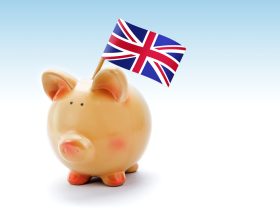For most people, investing is seen as an essential part of becoming financially secure and comfortable, but investing only works in your favour if you know where is good to invest money. As 2020 showed, a seemingly stable economy can turn around quickly, leaving those who haven’t prepared for a contingency in the lurch. However, those who could hold on to their investments may have done quite well, as the market rebounded and registered new all-time highs in the second half of the year.
Some options to invest your money
Renewable energy
In November last year, the Government announced a “green industrial revolution” that will create thousands of low-carbon jobs, cut emissions and establish the UK as a pioneer in offshore wind technologies and manufacturing to boost renewable energy. The 10-point plan, costing the Treasury a total of £12bn, will help the UK be carbon neutral by 2050. The UK is particularly well placed to take advantage of wind power, with some of the best conditions in Europe and high average wind speeds.
Some investors are therefore confident that renewable energy is a sector ripe for investment growth over the coming years. A report by fund manager Octopus Group recently found that half of institutional investors, including listed investment trusts and pension schemes, expect renewable energy to generate a net annual return of between 5 and 10 per cent over the next 12 months.
Investors looking to capitalise on this can either invest in renewable energy stocks or a specialist fund or trust. Many individual companies are not listed on public stock exchanges, which can make it difficult for individuals to buy and sell shares. Examples of listed environmental-focused companies include US electric car firm Tesla or Danish wind turbine manufacturer Vestas Wind Systems. Examples of renewable energy investment trusts include Greencoat UK Wind and NextEnergy Solar Fund. So, if you are considering where is good to invest money, then renewables could be an option as there is growing concern about fossil fuel and the focus is shifting towards green energy.
Gold
Gold was in high demand among investors last year due to uncertainty across global stock markets. The precious metal started the year at around $1,500 an ounce and ended 2020 at $1,882 an ounce – a 25 per cent rise. Gold is seen as a safe haven asset among investors and often performs well during times of economic stress due to the fact it is a physical asset.
However, the price of gold is based entirely on supply and demand so the price can be volatile and prone to the whim of investor sentiment. It’s impossible to tell how the commodity will perform this year. Global economies are likely to remain weak in the first few months of the year, with the Covid-19 vaccine taking time to be fully rolled out, and gold is likely to continue to be high in demand. But as the economy improves, investors may turn to other assets.
Those looking to invest in gold can purchase bullion bars and coins, or buy shares in an exchange-traded fund (ETF) that tracks the price of gold. Typically, investors are advised to keep gold and other alternative assets to around 5 per cent of their portfolio due to price volatility.
Cryptocurrency
Last year saw the return of bitcoin, the leader in digital currencies. The price of a single bitcoin soared from $6,995 to more than $29,000 as a number of large institutions invested in the currency. Analysts at JP Morgan say people who previously invested in gold see bitcoin as a modern alternative that appeals to younger savers.
The price is showing no sign of slowing, having risen 31 per cent from the start of 2021 to around $38,000.
The steady gains in the price of Bitcoin made the digital currency the top performing asset of 2020, up over 200 per cent.
The longer-term price trajectory for bitcoin is, I believe, undoubtedly upwards, says Nigel Green, chief executive of financial consultancy deVere Group.
However, bitcoin is a highly speculative investment and is not recommended by financial advisors. Investors should only put in what they can afford to lose. Bitcoin is not backed by gold or any other physical commodity and therefore has no intrinsic value.
Housing market
The temporary removal of stamp duty on home values below £500,000, announced in July last year in response to the coronavirus pandemic, helped UK house prices grow by 7.5 per cent to £230,920 in 2020, according to building society Nationwide.
The stamp duty holiday is expected to keep the sector flourishing until it comes to an end on 31 March, though buy-to-let landlords still have to pay the 3 per cent surcharge, but it’s unclear whether growth can be sustained throughout the remainder of the year. The furlough scheme will expire at the end of April, which could lead to a rise in unemployment and a rise in repossessions if homeowners are unable to meet their mortgage repayments.
The market is likely to quieten immediately after the stamp duty holiday ends, but with demand outweighing supply, the UK property market typically remains robust. Many people are also keen to make the move to rural or out-of-town locations now as working from home is becoming more commonplace, and this trend is likely to continue.
Stock market
With a successful Brexit deal having been reached and the roll-out of a Covid-19 vaccine underway, there is a wave of fresh optimism about the UK’s growth prospects this year. UK stock markets had a difficult year in 2020, with the FTSE 100 index ending the year down 14 per cent, its worst year since 2008. But investor confidence has returned and the FTSE 100 started the year with a surge, closing up almost 2 per cent on the first trading day of 2021.
Analysts say some sectors and companies are underperforming at the moment, particularly in the energy, banking, and tobacco sectors. Companies looking cheap at the moment include Imperial Brands, British American Tobacco, and Royal Dutch Shell, according to financial analytics firm Morningstar, as the total value of each company’s shares is lower than their current assets.
Investors can either invest in individual companies on a stock exchange or put money in a fund or investment trust that tracks a wide range of companies. The latter option gives wider diversification, decreasing the chances of losing money.







Leave a Reply